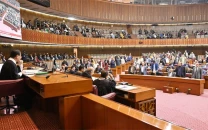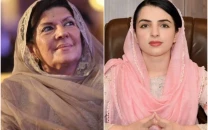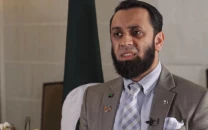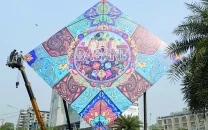Pakistan’s caste system: The untouchable's struggle
Sabir says his great challenge in life is being born a Deendar Changar - discriminated against, downtrodden.

Pakistan’s caste system: The untouchable's struggle
The son of a daily wager, Sabir is not a typical victim of abject poverty in the city. Reminiscing about how he read Russian literature when he came across old story books while picking garbage in class seven, Sabir says his great challenge in life has been his caste – that he was born a Deendar Changar - Pakistan’s version of the ‘untouchables’.
Contrary to popular belief, caste in Pakistan has been a means of systematic discrimination. The lower castes here are Pakistan’s downtrodden, including Massalis also known as Muslim Sheikhs, Choorahs who are majority Christian and Chamars or Changars who are also called Deendars if they practice Islam. In Punjab and Sindh these include the scheduled Hindu castes that serve as farm workers and bonded laborers.
Sabir admits that he faces greater discrimination than most of his “biradari” because he refused to stick to what is the generally acceptable position and career path of his caste. Living in the slums, and being considered lowest of the low in a society fixated on high and low birth, Sabir was always at the periphery, but his decision to pursue education did not sit well with the local community.
Muhammad Arif, his father who gets labor jobs with the help of his donkey cart, says he struggled with the decision of sending his children to school, “People of our biradari said that education was not for our people, that I should make Sabir help me with daily work, but I decided against it and have not sent my younger children to work as live-in domestic helpers like others in our community or forced them into working only.”
Discouraged, discriminated against and lacking any political identity, the city is now Sabir’s home, as it is easier for people of lower castes to access schooling and get odd jobs in urban hubs as compared to rural settings, where discrimination is far higher.
Abdul Rasheed Dholka, a political activist of Mazdoor Kissan Party in Sargodha has worked with lower caste farm workers, and says that in rare cases when young men from these communities are hired as peons or clerks, they try to cut off ties with their community and hide identity to avoid discrimination.
“Decades of oppression have led to circumstances where these people don’t even know how to stand up for their rights, because there is no representation,” he adds.
Dholka’s words reflect in Sabir’s thoughts, as the young man says he sometimes feels “like the Africans in South Africa or the Jews in Nazi Germany”. However, despite the twin challenges of poverty and his birth into the bottom of the social rung, Sabir manages to remain hopeful, and talks of changing the country into a better home someday.
Haris Gazdar, Director and Senior Researcher, Collective for Social Science Research in his paper “Class, Caste or Race: Veils over Social Oppression in Pakistan” argues that caste based marginalization is common in Pakistan.
“The trouble is that the biradaris and quoms are not all equal, and public silencing of the issue is very much about perpetuating existing hierarchies. The inequality is so severe and deeply embedded in parts of the country that it is hardly even noticed.”



















COMMENTS
Comments are moderated and generally will be posted if they are on-topic and not abusive.
For more information, please see our Comments FAQ